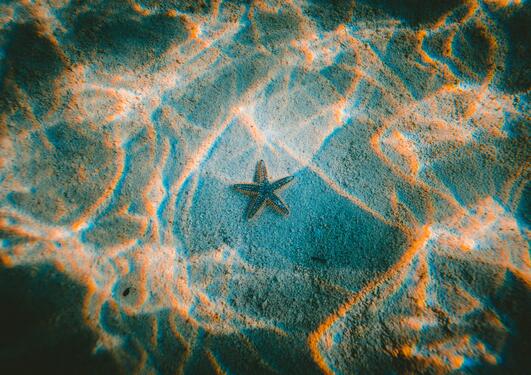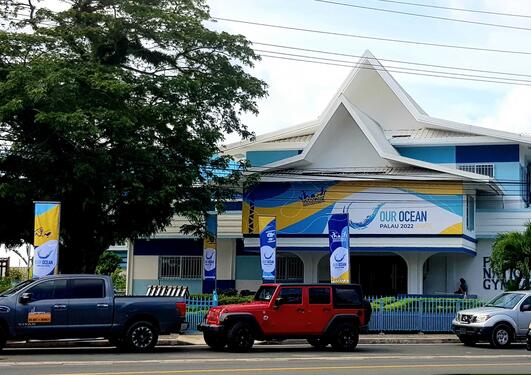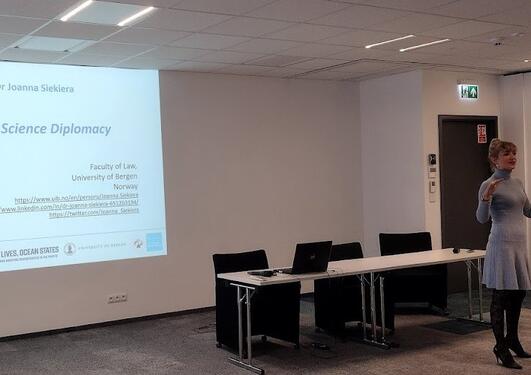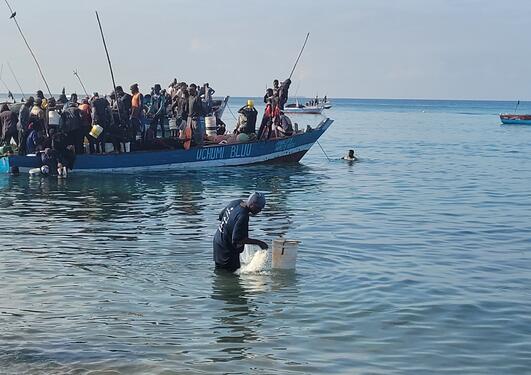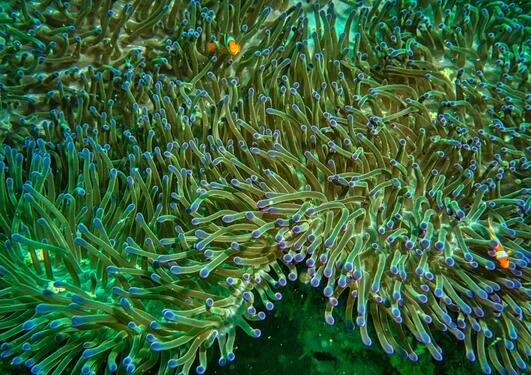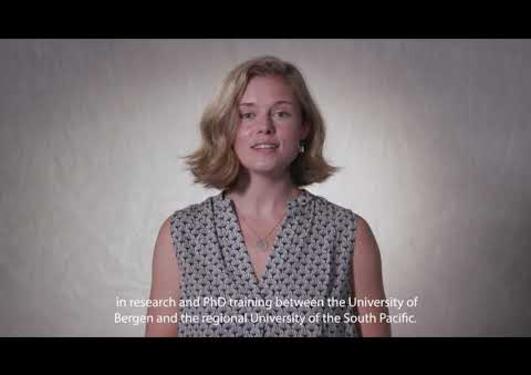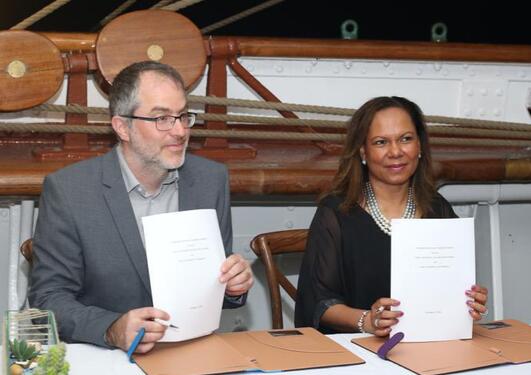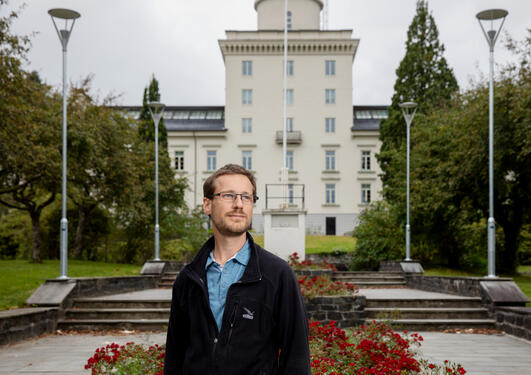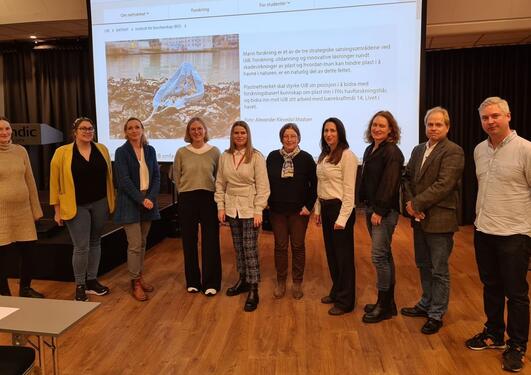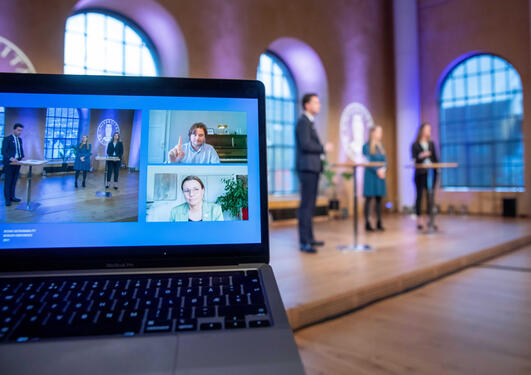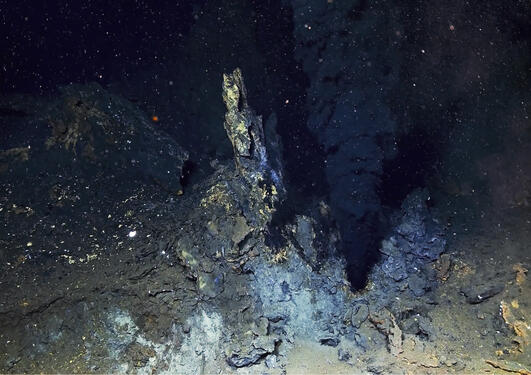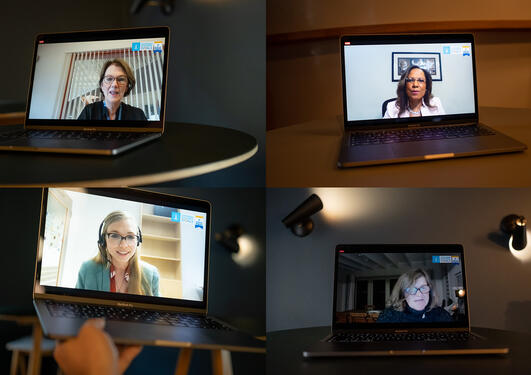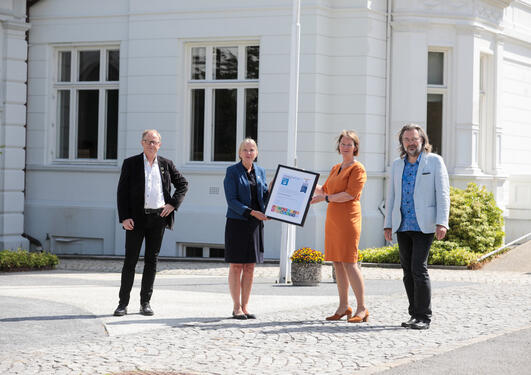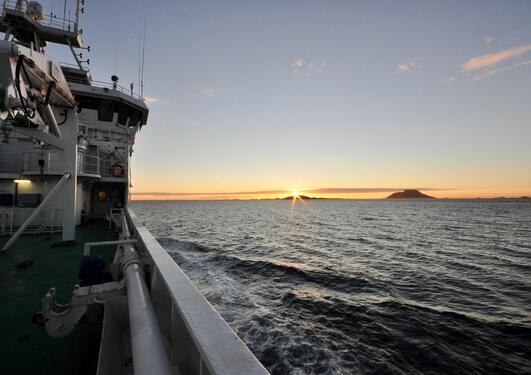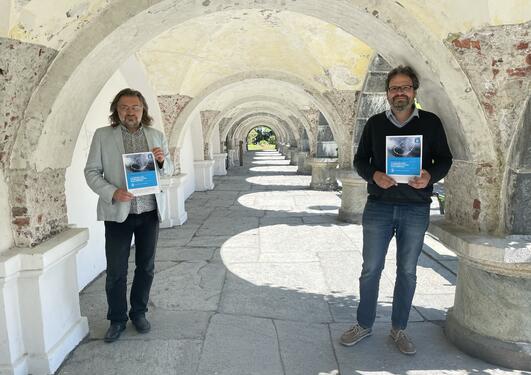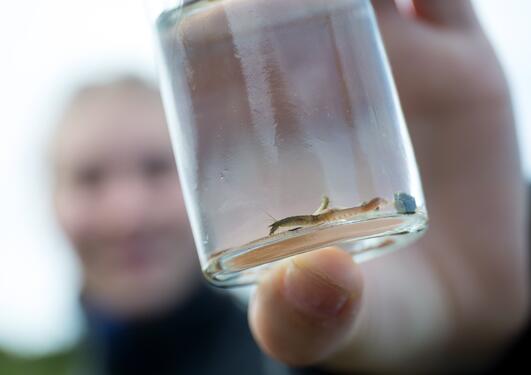News archive for Ocean
The University of Bergen has produced the special Sustainable Ocean Series, which has now been translated into all six official United Nations languages, spoken by almost three billion people daily.
The ocean’s role for Earth was one of the key topics discussed at Our Ocean 2023 in Palau. UiB Professor Edvard Hviding was one of only a few researchers present at the conference and engaged in discussions on the Pacific’s role in climate change. But what would be the best measure to save our ocean?
UiB law scholar Joanna Siekiera spoke on ocean science diplomacy as part of the reunion of the 2020 Warsaw Science Diplomacy School.
The Norad supported project “Samaki”, which means fish in Swahili, unites Norwegian researchers with colleagues in Tanzania to study how small-scale fisheries are the key to combat malnutrition. This is part of a bigger picture in the fight for scarce resources and on the question whether small fish should be used as food for humans or become fish food?
Chr. Michelsen Institute and the University of Bergen have a long-standing agreement to strengthen development-related research in Bergen. We now invite applications for collaboration between our two institutions for 2022-2023. Deadline 15 June, 2022.
It is essential to examine whether the mathematical description of marine food webs reflect the ecosystems they represent. A new proposal is integrating multiple mathematical disciplines and this requires collaboration on an international front.
On World Ocean Day in June 2021, a unique Norwegian-Pacific PhD Scholarship Programme was picked as one of the first 60 UN Ocean Decade Actions worldwide and one of three Norwegian actions.
Saturday 13 November 2021, the University of Bergen and the University of the West Indies signed a Memorandum of Understanding to strengthen the ties between the two long-term partners.
Clemens Spensberger's research aims to drastically improve prediction of weather incidents, by describing and establishing climate links between different geographical regions.
Finally, the Plastics Network got a chance to gather and for the first time connect their members face-to-face in a seminar 23 November.
The discussions at the third Ocean Sustainability Bergen Conference brought together scientists, students, industry, and policymakers taking in everything from the protecting the blue forest to seabed mining and how to create a sustainable balance between preservation and development of the ocean.
An interdisciplinary team from the University of Bergen, has taken a major step forward in deep sea exploration and sampling of Earth’s last truly remote and inaccessible seafloor environment – the extreme depths of the ice-covered Arctic Ocean.
Ocean literacy took centre stage at the side event “Partnering to educate the ocean science leaders of the future” during the 2021 High-level Political Forum.
The UN High-level Political Forum (HLPF) meets each July, bringing together stakeholders from politics, diplomacy, civil society, industry, trade unions, academia and others to discuss progress on the Sustainable Development Goals (SDGs) leading up to 2030.
In 2018, the University of Bergen was appointed the SDG14 Hub for United Nations Academic Impact (UNAI) for a three-year period. This month it has been announced that the university will enjoy three more years as SDG14 Hub.
Once again, the University of Bergen is ranked among the top ten oceanography universities in the world.
The SDG Bergen Policy Brief series is a novel and innovative way to communicate with policy-makers to engage with the Sustainable Development Goals (SDGs). The goal is to have more research-based information reach policy-makers for societal impact.
The University of Bergen is happy to announce that we are hosting an OceanTeacher Global Academy course in partnership with the Intergovernmental Oceanographic Commission.
Pages
- October 2025 (1)
- August 2025 (2)
- July 2025 (1)
- June 2025 (1)
- April 2025 (1)
- March 2025 (1)
- February 2025 (3)
- January 2025 (1)
- October 2024 (2)
- September 2024 (4)
- August 2024 (3)
- June 2024 (3)
- May 2024 (1)
- April 2024 (2)
- March 2024 (5)
- February 2024 (2)
- December 2023 (1)
- November 2023 (2)
- October 2023 (1)
- September 2023 (2)
- August 2023 (2)
- July 2023 (1)
- June 2023 (3)
- April 2023 (3)
- March 2023 (1)
- February 2023 (1)
- January 2023 (1)
- November 2022 (1)
- October 2022 (1)
- June 2022 (2)
- April 2022 (3)
- March 2022 (1)
- February 2022 (1)
- December 2021 (1)
- November 2021 (2)
- October 2021 (3)
- July 2021 (1)
- June 2021 (4)
- May 2021 (1)
- April 2021 (1)
- March 2021 (3)
- February 2021 (2)
- January 2021 (1)
- December 2020 (2)
- November 2020 (2)
- October 2020 (2)
- August 2020 (2)
- July 2020 (1)
- June 2020 (6)
- May 2020 (2)
- April 2020 (2)
- March 2020 (2)
- February 2020 (1)
- January 2020 (1)
- November 2019 (1)
- October 2019 (5)
- September 2019 (2)
- August 2019 (1)
- July 2019 (3)
- June 2019 (1)
- May 2019 (2)
- March 2019 (1)
- February 2019 (1)
- January 2019 (1)
- November 2018 (2)
- October 2018 (2)
- September 2018 (2)
- August 2018 (2)
- June 2018 (1)
- May 2018 (2)
- April 2018 (1)
- February 2018 (1)
- January 2018 (1)
- December 2017 (1)
- November 2017 (3)
- June 2017 (4)
